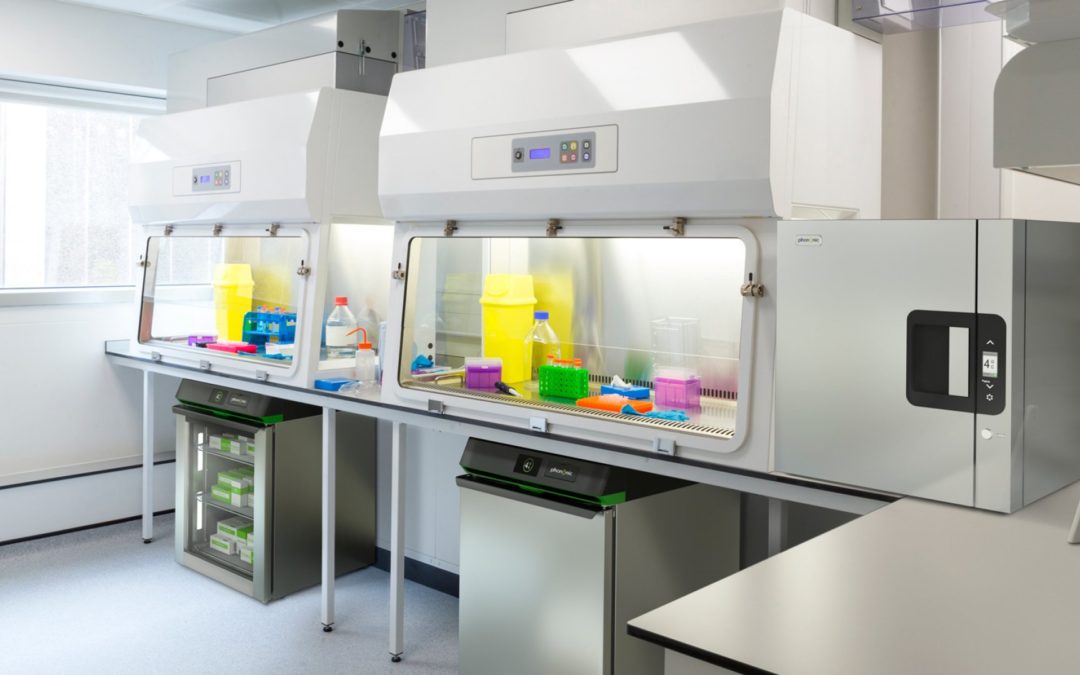Refrigeration is a larger contributor to climate change that what we would expect. In fact, climate change think tank “Project Drawdown” lists “refrigerant management” within the top 10 (or even top 5, depending on how you sort) of their list of 100 possible solutions to fight global warming.
In conventional refrigeration systems, hydrofluorocarbons are used as refrigerants. It’s been that way for over 100 years. However, these chemicals are highly prone to leaking into the atmosphere, where they trap an enormous amount of heat (thousands of times greater than carbon dioxide), worsening climate change.
Turns out, it is possible to do away with all of that, by using solid state systems. No gases, no moving parts, just fish and chips. And they are much more energy-efficient. One company in particular has been trying to do exactly that:
Founded in 2009, Phononic Inc. is building thermoelectric refrigerators that use up to 40% less energy, take up less room and pose fewer environmental risks than the conventional refrigerators. Phononic’s refrigerators make use of the thermoelectric effect, removing the need for dangerous greenhouse gases such as hydrofluorocarbons, ammonia or propane.
You can read this article by EcoWatch if you are curious about the nitty-gritty of how a fridge works.
Here, let’s step away from the tech for a moment and look at how Phononic built their business.
How do you go about making refrigerators drastically different when the industry has not concerned itself with the problem for over a century? How do you create enough scale and market leverage to drive down the cost of producing solid state cooling technology and products?
Starting with B2C would be quite hard, and so is starting with B2B. But B2B, when pitched the right way, may get you the runway to start building your technology and products, show market demand and raise investment.
The watershed moment
Facilities like data centers, hospitals, and laboratories have tremendous cooling requirements, and this will only increase with global warming continuing on its way. But you have to pitch them the right way. CEO Anthony Atti had this watershed moment when the director of a hospital he was pitching said:
“Thank you for the energy savings, but last month the air compressor in our lab’s fridge went down, and we lost $500,000 of oncology drugs and little kids couldn’t get their leukemia treatments.”
It wasn’t about the energy savings. It was all about reliability.
And when you look at their website, they double down on the industry-specific marketing, with selling points such as (emphasis ours):
“More precise, up to 20x better temperature stability: Compressor-based systems run on duty cycles, which means they fluctuate in temperature and are constantly powering on and off. Phononic’s solid-state system fluctuates at just ±0.5°C and is always on to deliver uniform cooling for safe vaccine and breast milk storage.“
And:
“Near-silent, less than 35 dB: With solid-state technology, our medical-grade refrigerators don’t have a compressor. That means, they run nearly silent. So our refrigerators can be placed directly in patient rooms to improve workflow efficiency and patient satisfaction scores, and ultimately increase revenue.”
Different industry, different pitch
When Pepsi Bottling ran a pilot test in 2018 by installing Phononic fridges in North Carolina supermarkets and convenience stores, sales increased in those stores compared to those using conventional fridges. Why? Because they were able to install the Phononic refrigerators at the ends of aisles and near cash registers, instead of putting beverages in larger fridges in the back.
Why? Because conventional fridges often require ventilation and a separate power circuit.
Guess what? Phononic went on to sign a deal with Pepsi Bottling a few months later, to use its fridges in stores across the United States.
Phononic got smart. It has partnered with large companies such as Pepsi and secured significant funding that we hope will make it viable and successful in the future. And it’s not just about fridges—the technological implications of solid state cooling are numerous.
When it comes to global warming, most of us People tend to think of renewable energy—but with the high demand of refrigeration in data centers (thanks to cryptocurrencies for ruining everything), laboratories, hospitals (for vaccines, medication and other materials) and in the food industry, we (Regento) think that it could be a step forward in slowing down global warming. And every step counts.

